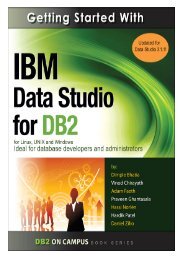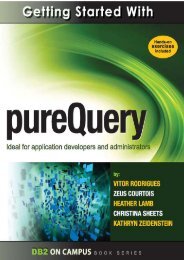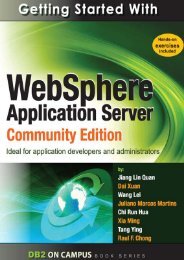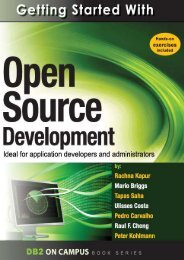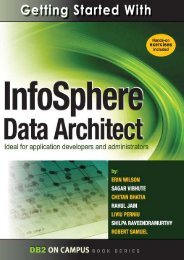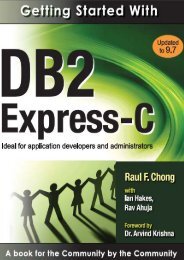Managing Computers in Large Organizations
You also want an ePaper? Increase the reach of your titles
YUMPU automatically turns print PDFs into web optimized ePapers that Google loves.
<strong>Manag<strong>in</strong>g</strong> Microcomputers <strong>in</strong> <strong>Large</strong> <strong>Organizations</strong><br />
http://www.nap.edu/catalog/167.html<br />
About this PDF file: This new digital representation of the orig<strong>in</strong>al work has been recomposed from XML files created from the orig<strong>in</strong>al paper book, not from the<br />
orig<strong>in</strong>al typesett<strong>in</strong>g files. Page breaks are true to the orig<strong>in</strong>al; l<strong>in</strong>e lengths, word breaks, head<strong>in</strong>g styles, and other typesett<strong>in</strong>g-specific formatt<strong>in</strong>g, however, cannot be<br />
reta<strong>in</strong>ed, and some typographic errors may have been accidentally <strong>in</strong>serted. Please use the pr<strong>in</strong>t version of this publication as the authoritative version for attribution.<br />
A PERSPECTIVE FOR THE CHIEF EXECUTIVE OFFICER 71<br />
A Perspective for the Chief Executive<br />
Officer<br />
Alastair I. Omand*<br />
What is so different about the personal computer that it causes<br />
management such discomfort? Why is it so hard to figure out which issues<br />
deserve top management's attention?<br />
First, the personal computer marketplace is extremely dynamic. Changes<br />
<strong>in</strong> the technology are com<strong>in</strong>g rapidly, apparently too fast for management to<br />
know what to buy. Almost daily the trade journals announce new<br />
microcomputer products, but nobody knows which are best for the long term.<br />
Some of the claims are mislead<strong>in</strong>g, and prices are always chang<strong>in</strong>g. It is a much<br />
different pace from that of the traditional world of large computers.<br />
Second, there is no longer an obvious central po<strong>in</strong>t for control. Central<br />
management <strong>in</strong>formation systems (MIS) departments have traditionally<br />
controlled the development and operation of computer systems, as well as the<br />
data used by them. End users have worked through programmers or MIS liaison<br />
people to get their work done. With personal computers, raw comput<strong>in</strong>g power<br />
is now available on the desktop of the user, who can do many if not all of the<br />
th<strong>in</strong>gs formerly done by the MIS group.<br />
Further, this comput<strong>in</strong>g power is available to the user at relatively<br />
* Alastair I. Omand is executive <strong>in</strong> charge, General Motors Information Systems and<br />
Communications Activity, Warren, Michigan.<br />
Copyright © National Academy of Sciences. All rights reserved.




